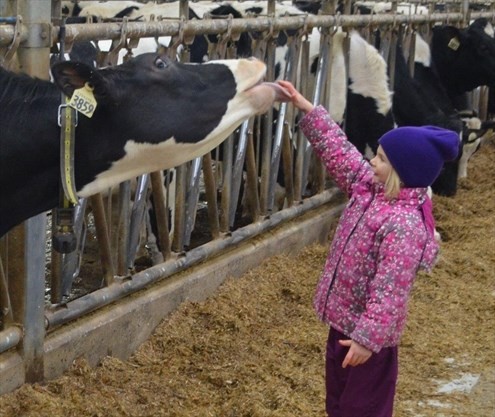
When MPs in Ottawa listened to testimony from agricultural leaders on the passage of the United States-Mexico-Canada Agreement (USMCA) in February, the bulk of concerns were raised by the dairy sector.
In a passionate plea, Dave Taylor, chair of the British Columbia Dairy Association and owner of Viewfield Farm on Vancouver Island, told members of all federal parties that the new deal would weaken the sector by putting caps on exports.
He warned that if USMCA came into force before Aug. 1 (the start of the dairy year), the cap on skim milk powder and milk protein concentrates would drop from 55,000 tonnes to 35,000 tonnes on that date.
“That is a drop of about 35 percent after possibly only one, two or three months; we’re not sure at this point. That would be another blow to our dairy market with no time for transitioning,” he said at the time.
Michael Barrett, chair of the Dairy Processors Association of Canada, was sitting next to Taylor and offering his own testimony. He offered at least a partial solution.
“One way for the government to at least try to mitigate the negative impact of the export caps is to ensure that (USMCA) enters into force on Aug. 1, 2020 or later, so that the industry operates a full year under a higher export cap of 55,000 tonnes,” he said.
At the time, all expectations pointed to USMCA coming into force on Aug. 1.
Some opposition parliamentarians suggest they were assured by government members the deal would not be activated before that date.
Whether true or not, it is clear the federal government knew there would be a negative impact on the industry if USMCA came into force before Aug. 1.
Now we know USMCA is set to go live July 1, and this is welcomed news for just about everyone in the agriculture or agri-food sector.
Unless you’re involved in dairy.
Dairy Farmers of Canada and the Dairy Processors Association of Canada are now charging that parliamentarians and producers were “misled” by the governing Liberals on the date of implementation of the deal.
“The dairy sector was informed at the last minute and judging by the reaction from the opposition parties, we weren’t alone in this being a complete surprise,” said Jacques Lefebvre, chief executive officer of Dairy Farmers of Canada in a statement.
Dairy Farmers of Canada is saying the early implementation will mean losses of about $100 million, in addition to $330 million in annual losses because of less market share.
Statements from federal officials are essentially copy-and-paste answers from months ago that boil down to the message that concessions were necessary to get the deal with the Americans done.
Federal officials are quick to remind anyone who asks that the U.S. position at the start of USMCA negotiations was to entirely eliminate supply management.
They also continue to promise there will be compensation for giving up market share.
Whether or not that compensation will factor in the early implementation date remains to be seen.
Given the powerful dairy lobby — particularly in Quebec where the governing Liberals often appeal for support — it won’t be surprising if they do offer more money to the sector as a result of the unfortunate timeline.
There is no certainty that will be the case, but one thing is certain: the federal governement proceeded with early implementation of the deal knowing it would come at a cost.























